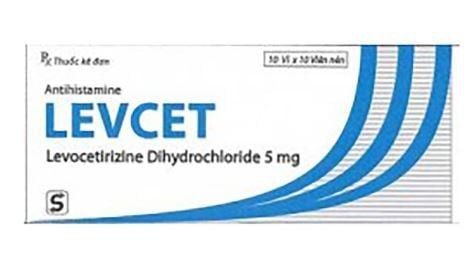This is an automatically translated article.
Article written by Master - Doctor Mai Vien Phuong - Head of Gastrointestinal Endoscopy Unit - Department of Medical Examination and Internal Medicine - Vinmec Central Park International General Hospital.
Researchers say junk food contains a compound that has been linked to food allergies, but other experts say there are many different causes for this condition. Let's find out more in the article below.
1. Why do junk foods cause food allergies?
A compound that activates sugar molecules may be behind some of the increased food allergies.
A new study shows that people's "love" of processed foods may be one of the reasons for the dramatic increase, as well as the severity of food allergies in the past few years. past decade.
When looking at a group of children aged 6 to 12 years old, researchers from the University of Naples Federico II found that children with food allergies had high levels of compounds associated with "junk" foods. processed food is higher than children with respiratory allergies or not.
Potential culprits are called glycation end products, or AGEs. Glycation is the process by which a sugar molecule binds to a protein or fat under heat. This is what happens when you pan-fry a steak to a nice brown crust or fry potatoes in oil.
In other words, they are great for taste and aesthetics but not all of them are good for your health. Highly processed foods tend to contain higher levels of AGEs. According to Dr. Roberto Berni Canani, Associate Professor of Paediatrics at the University of Naples and lead investigator of the study, the existence of higher levels of AGEs in children with allergies may indicate a "disabled association." short". There are also opinions that there are many other reasons behind this situation.
“Previous studies have hypothesized that dietary sources of AGEs – commonly found in the Western diet – may contribute to the increased prevalence of food allergies. However, there are many factors that contribute to the increased prevalence of allergies and it is important for us to understand all the ways our internal environment has shaped our susceptibility to food allergies. products,” said Dr. Wendy Sue Swanson, a pediatrician at Seattle Children's Hospital and chief medical officer of Before Brands. “For example, processed foods may lack protein diversity, but more research needs to be conducted to understand the exact role AGEs play in the development of food allergies.”

2. Why there are more and more cases of allergies
Regardless of the exact cause, the reality is that food allergies have increased by nearly 200% in the past 20 years, according to Dr. Tania Elliott, a physician attending NYU Langone Health in New York. “The cause is thought to be multifactorial, including genetics and environment,” she said.
Dr. Lakiea Wright, internist, allergist and immunologist at Brigham Hospital and Medical Director at Thermo Fisher Scientific, also agrees. There are several key factors thought to contribute to this increase in allergy rates, she said. Here are some of the causes she listed:
Late introduction to certain foods. Late exposure to certain potentially allergenic foods, such as peanuts and eggs, may contribute to increased food allergies. Climate change. The way plants grow due to temperature changes can make them produce more and stimulate the immune system, leading to the development of food allergies. Diet. People around the world eat more processed foods and eat less fruits and vegetables, which affects our gut microbiome. Genes and environment. This includes not only genetic makeup but also maternal (pregnant) exposure to allergens, diet, environmental pollution and/or chemical exposure. Dr Douglas Jones, an allergist and immunologist at Rocky Mountain Allergy and at the Tanner Clinic in Utah, adds that early antibiotic use can also affect the gut and the likelihood of allergies developing. .
He said: “Researchers believe that early antibiotic use will change the microbiome, affecting the development of allergic diseases. The early use of antacids in children can also cause problems due to changes in the pH of the stomach and the way food is digested by the body once it is absorbed.

3. How to prevent the growth of allergens?
Obviously allergies can be caused by many different factors, so how best to prevent or treat them?
For example, peanut allergy appears to be caused by both genetic and environmental causes. There's not much you can do about genetics, but environmental approaches can be helpful.
The increase in peanut allergy is thought to be secondary to recommendations to avoid peanuts in the diet until 2 years of age. Early warning is now thought to be of primary importance in preventing food allergies.
However, attempts at oral immunotherapy, such as peanut micronutrients, have had mixed results. Researchers are getting closer to a functional vaccine for peanut allergy.
Dr Wendy Sue Swanson says: “For infants, early introduction to a variety of foods seems to be a problem-solving approach. Pediatricians are changing their views on how to protect babies from food allergies. They recommend that parents introduce potentially allergenic foods to their children from an early age, usually starting at 4 to 6 months, when a child's immune system is still developing... Now Now, I recommend early on giving your child a varied diet that includes the most common allergenic foods regularly and over a long period of time.”
This will build tolerance over time so your baby can get used to a variety of foods. The primary treatment for food allergies is to avoid substances you are allergic to by reading labels before use and working closely with your doctor.
Currently, at Vinmec International General Hospital, there is a package of examination and advice on treatment of atopic dermatitis to help customers assess the overall condition of the disease and advise on measures to help prevent recurrence. .
When registering for a package of examination and consultation for treatment of atopic dermatitis, customers will receive: Dermatology specialist examination. Perform tests such as: Quantification of IgE, fresh mycobacteria, specific IgE quantification with respiratory allergens - food (Panel 1 Viet), test Rida Allergy Screen (panel 1), ..
.
Please dial HOTLINE for more information or register for an appointment HERE. Download MyVinmec app to make appointments faster and to manage your bookings easily.
References: rochester.edu, acaai.org, dermnetnz.org, Healthline













